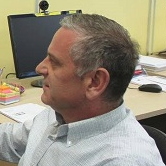Sustainability in Cities and Campuses
A special issue of Sustainability (ISSN 2071-1050). This special issue belongs to the section "Sustainable Education and Approaches".
Deadline for manuscript submissions: 27 May 2024 | Viewed by 375
Special Issue Editors
Interests: structural health monitoring (SHM); self-monitoring materials and structures; computational mechanics; civil infrastructures
Special Issues, Collections and Topics in MDPI journals
Interests: sustainability policies and practices; local development; strategic spatial planning and urban creativity conducted in Italy; Brazil; Argentina; Chile; Mexico; Uruguay
Interests: intelligent transportation systems; road safety; smart cities; smart devices; transit systems; traffic control; traffic flow model; driver behavior
Special Issues, Collections and Topics in MDPI journals
Interests: regional planning; urban design; valorization of historical and natural cultural heritage; sustainable and smart cities
Special Issue Information
Dear Colleagues,
University campuses, as well as other types of campuses (industrial, research,…) and any kind of complex organizations, often have all the characteristics of a city, becoming interesting prototypes for developing innovative proposals for the improvement of urban life. This opportunity is facilitated by the presence on university campuses of many research areas which helps the search for solutions to multidisciplinary problems.
Problems related to sustainability are inherently interdisciplinary, since the early definition of sustainable development which appeared as a global concern in 1987—Brundtland Report, by the World Commission on Environment and Development (WCED).
Furthermore, university campuses are in close relationship with cities hosting them and, naturally, interrelationships are generated between them which can produce innovative methodologies and tools for analysis and advanced studies in several scientific sectors, also useful for the economic, social and environmental issues.
Universities play a dual role with regard to sustainability; on the one hand, they can take measures to reduce and mitigate their impact as actors, on the other hand, they have an impact on training the future ruling classes and their sustainability skills. However, the role of universities is not simply to teach and research. Recently, in Italy, the so-called third mission, through which they contribute to the growth of society, is gaining importance.
The social role of universities, within the community, can and must help to develop and promote the skills needed to achieve the Sustainable Development Goals set out by the United Nations 2030 Agenda.
This Special Issue “Sustainability in Cities and Campuses” aims at collecting high-quality works about implementations, case studies, higher education courses, researches and new trends that qualify Universities and Cities as a driver to sustainable development from a multidisciplinary perspective: cultural, technical, economic, social, environmental.
It is a matter of fact that in the last three years the COVID-19 pandemic crisis has had a huge impact on the lifestyle change of both cities and university campuses. Numerous solutions to various economic, social and environmental problems related to sustainability have arisen from this crisis. SI also intends to collect contributions relating to experiences, case studies, research, and anything else that has been done to overcome the pandemic crisis, to prevent future crises and, in any case, to make cities and campuses more resilient.
We look forward to receiving your contributions.
Dr. Raffaele Zinno
Prof. Dr. Gianfranco Franz
Prof. Dr. Giuseppe Guido
Dr. Pierfrancesco Celani
Guest Editors
Manuscript Submission Information
Manuscripts should be submitted online at www.mdpi.com by registering and logging in to this website. Once you are registered, click here to go to the submission form. Manuscripts can be submitted until the deadline. All submissions that pass pre-check are peer-reviewed. Accepted papers will be published continuously in the journal (as soon as accepted) and will be listed together on the special issue website. Research articles, review articles as well as short communications are invited. For planned papers, a title and short abstract (about 100 words) can be sent to the Editorial Office for announcement on this website.
Submitted manuscripts should not have been published previously, nor be under consideration for publication elsewhere (except conference proceedings papers). All manuscripts are thoroughly refereed through a single-blind peer-review process. A guide for authors and other relevant information for submission of manuscripts is available on the Instructions for Authors page. Sustainability is an international peer-reviewed open access semimonthly journal published by MDPI.
Please visit the Instructions for Authors page before submitting a manuscript. The Article Processing Charge (APC) for publication in this open access journal is 2400 CHF (Swiss Francs). Submitted papers should be well formatted and use good English. Authors may use MDPI's English editing service prior to publication or during author revisions.
Keywords
- sustainable development
- education for sustainable development in higher education
- sustainability governance
- transfer for sustainable development
- implementing the sustainable development goals on campus
- implementing best available technology on campus building stock
- developing sustainable mobility in campus
- campus as living lab—education, research and collaboration in campus projects
- measuring and monitoring sustainability on our campuses and in our cities
- challenges of post-COVID-19 world







